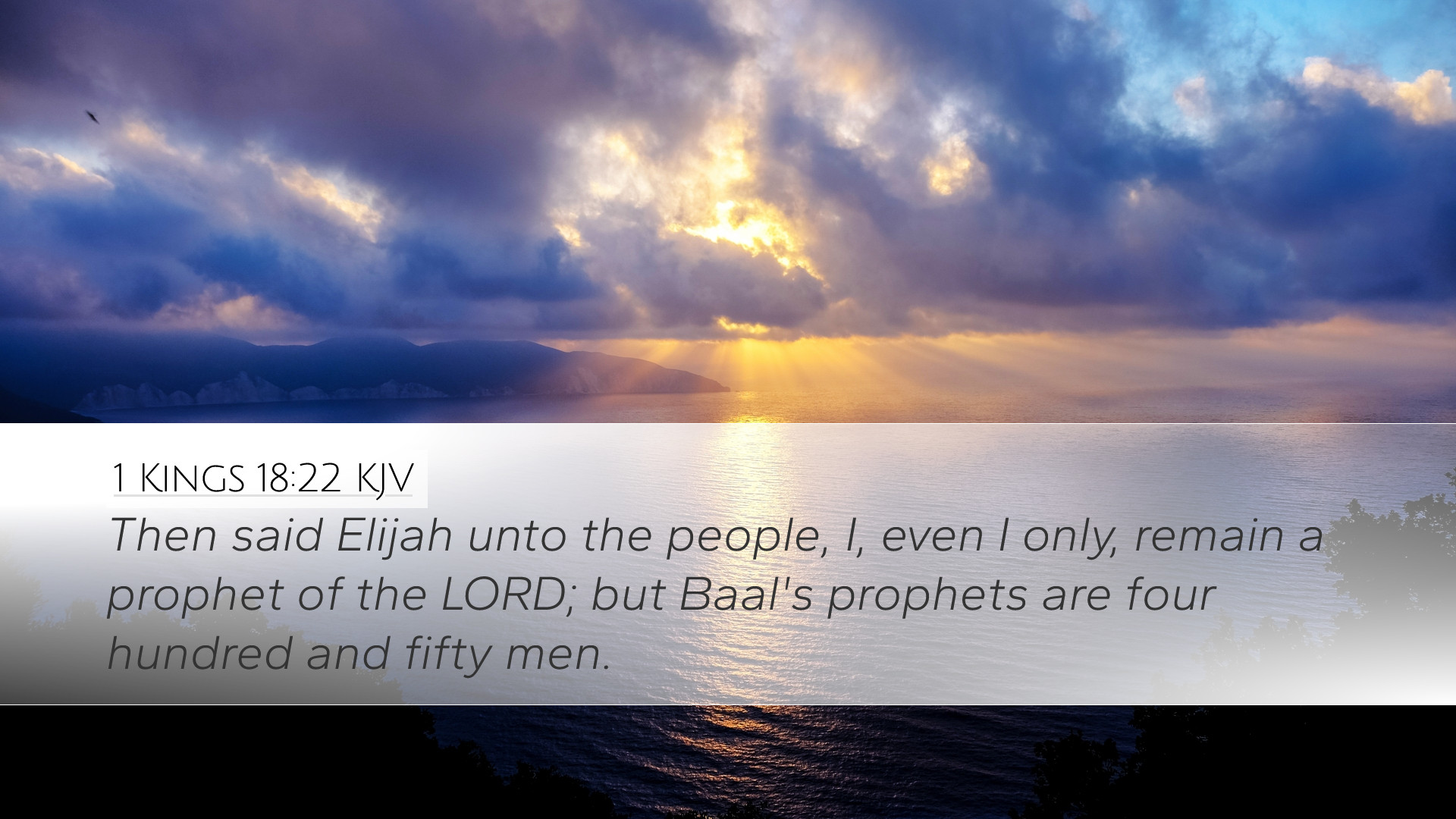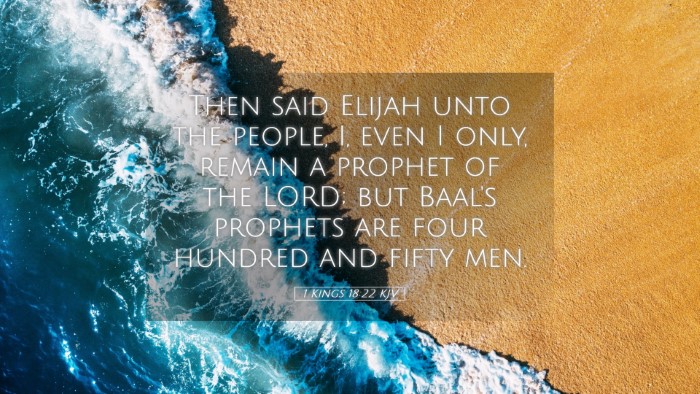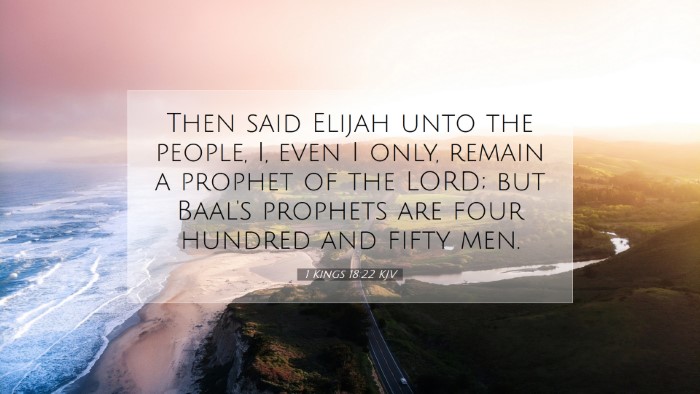Commentary on 1 Kings 18:22
In 1 Kings 18:22, the prophet Elijah stood boldly in front of the people of Israel, declaring a decisive challenge between the worship of Yahweh and the worship of Baal. The verse states:
"Then Elijah said to the people, 'I, even I only, am left a prophet of the Lord; but Baal's prophets are four hundred and fifty men.'" (1 Kings 18:22, ESV)
This moment occurs during a time of great spiritual crisis in Israel, where the worship of the true God had been largely overshadowed by the idolatrous practices surrounding Baal. The insights from various public domain commentaries collate to provide a rich understanding of this pivotal event.
Context and Historical Background
Elijah's proclamation occurs amid a confrontation with King Ahab and the prophets of Baal on Mount Carmel. Israel was in a drought due to divine judgment, and the people were desperately seeking a resolution. The context of this verse reflects the struggle for the identity of Israel as God’s chosen people versus the encroachment of pagan worship.
Elijah's Solitary Stand
Elijah's Claim: Elijah emphasizes his solitary position as the Lord's prophet. Matthew Henry notes that Elijah's assertion of being the only prophet left highlights both the remnant of true worshippers and the prevalence of apostasy in Israel. Elijah feels a weighty responsibility to advocate for Yahweh in the midst of widespread unbelief.
Significance of Numbers
The mention of the 450 prophets of Baal serves to illustrate the overwhelming odds faced by Elijah. It underscores the enormity of the challenge and the courage required to confront such a majority. Albert Barnes points out that despite Elijah’s isolation, he represents the true faith against a tide of false worship.
Theological Implications
From a theological perspective, Elijah’s challenge signifies the persistence of truth in the face of error. Adam Clarke explains that God always maintains a witness to Himself, even when it seems that faith has diminished. Elijah's predicament symbolizes the ongoing battle between light and darkness, truth and falsehood.
The Call to Decision
Elijah's declaration serves as a call to the Israelites. The very essence of his challenge is not merely about the recognition of a deity but the necessity of an exclusive commitment to God. The phrase, 'I, even I only', creates a reflective moment for the readers and hearers regarding their allegiance, not only in ancient times but in the present day.
The Role of an Intercessor
Elijah’s role can also be viewed through the lens of intercession. He stands not only for himself but for the integrity of Israel's covenant with God. Henry emphasizes the importance of prophetic voices in guiding the people back to true worship. This reiterates the purpose of a prophet: to intercede and bring the people back to God from the brink of apostasy.
The Contrast with Baal Worship
Elijah' confrontation with the prophets of Baal provides a stark contrast between the living God and the made-up gods of the Canaanites. Baal, associated with rain and fertility, had won the hearts of many in Israel. In light of the drought, the absurdity of turning to a non-existent deity was emblematic of humanity's tendency to rely on false gods in times of crisis. Barnes underscores that through Elijah, God intends to restore a correct understanding of divine power and authority.
Practical Applications for Today
This scenario compels believers to examine their own lives and the idols they may unwittingly endorse. Elijah’s challenge reveals the necessity of choosing whom we will serve (Joshua 24:15). The duality of loyalties continues to confront modern believers as society offers numerous distractions and alternatives to genuine faith.
Conclusion
In summation, 1 Kings 18:22 encapsulates the essence of Elijah's prophetic ministry and the larger narrative of Israel's relationship with God amidst idolatry. The convergence of Elijah’s challenge, the weight of prophetic isolation, and the stark contrast between Yahweh and Baal serve as a powerful reminder for God’s people to remain steadfast in their commitment to the covenant. As pastors, students, theologians, and scholars reflect on this passage, they are invited into a deeper understanding of what it means to stand firm in faith—especially when the odds appear insurmountable.
In the face of cultural pressures and spiritual complexities, may the clarity of Elijah's challenge resonate today, calling us towards fidelity to God and the active pursuit of His truth.


